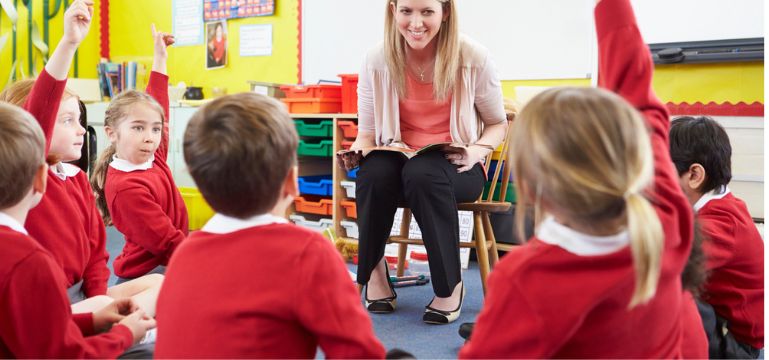From their early years onwards, most pupils demonstrate a high level of independence, accessing the different provisions with confidence. They select areas where they would like to engage, playing well together, sharing, and taking turns. As a result, pupils achieve high standards of learning as they move through the school.
Introduced in the school’s early years classes, group work helps to reinforce pupils’ concept of themselves as successful learners. They see moments where they seem to be going wrong as an opportunity to re-think the situation and they recognise this as an essential part of learning.
Teachers model problem-solving strategies and provide mentoring opportunities for older pupils. They encourage pupils to use their own thought processes to arrive at solutions, become increasingly confident in articulating their choices, justifying their results, and reflecting on their learning. They develop an ability to select tasks that extend their individual skills.
In line with the school’s mission statement, staff encourage pupils to think creatively through drama, practical mathematics, creative writing, philosophy and elements of the Expressive Arts area of learning and experience, all of which extend skills, deepen thinking and enhance the pupils’ identity as independent learners. The high expectations of all staff drive the mindset of the pupils from Nursery through to Year 6.
Teachers plan opportunities for pupils to work independently, as well as collaboratively, developing confidence and enhancing learning at every level. They select texts that engage pupils and enable them to develop a range of skills across the curriculum, providing authentic contexts and real meaning, all the time promoting the confidence required of independent learners.
From their very first day in St. Gwladys, self-esteem is recognised as the primary element in developing confident, successful, and independent learners. The success of this approach is borne out by the very high standards achieved by the end of their time at school, despite the levels of disadvantage in the community.

